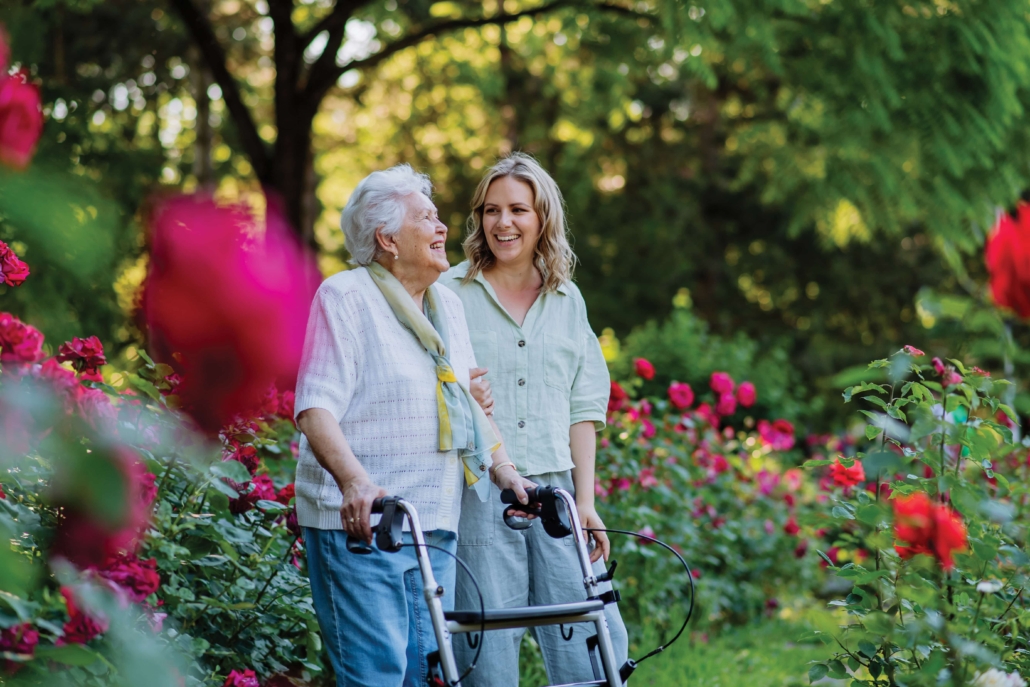The Guilty Caregiver
Understanding and coping with guilt when supporting someone with dementia. Julia Sherwood has provided counselling support to Dementia Auckland clients for two years. She has also supported her own family members with dementia.
Caring for loved ones with dementia often includes times of emotional strain. One prevalent and often overwhelming emotion experienced by caregivers is guilt. Whilst the experience and causes of guilt are unique to everyone, this article cites common scenarios that can elicit caregiver guilt and explores the possible causes of these uncomfortable feelings. Strategies are suggested to help carers head off or respond to guilt.
Guilt can occur as part of a cycle: Stress > Resentment > Emotional outburst > Guilt > Stress …
This pattern is often a sign of caregiver stress, where frustration and resentment may escalate in response to challenging situations with the person with dementia, leading to an emotional outburst. If you notice your emotions rising in the moment, try to pause, then: walk around the block, count to ten, hide in the bathroom, call a trusted friend or relative, or switch on the TV as a distraction. Then congratulate yourself on keeping your cool and avoiding the guilty aftermath. Follow this up by working on a plan to reduce your stress by enlisting more support. If you don’t know how to get help, ask your Dementia Advisor or support group for ideas.
Guilt can arise when unrealistically high standards are set.
This is often influenced by upbringing or perceived family and societal expectations. Recognise that perfection is unattainable. Reframing expectations to be more realistic can be helpful, along with acceptance of the situation and constructive self-talk (‘This is where we are right now and I’m doing my best in sometimes challenging circumstances’).
The person with dementia can make guilt-inducing requests.
For instance, if plans to meet a friend for coffee are met with a plea not to go, consider that what lies beneath this is likely anxiety about being alone without their emotional ‘anchor’. Depending on the stage of dementia, offering reassurance, and writing the plan on a whiteboard can help. Reminding ourselves of the importance of our separate personal time to our overall health and ability to cope, can help counteract guilt in this situation (i.e. constructive self-talk).
External criticism from friends and relatives can contribute to caregiver guilt.
Those who are not regular caregivers of the person with dementia may not comprehend the challenges. Educating others about the complexities of caregiving can be empowering, along with requesting specific help. An alternative strategy to shield ourselves from critique is to decide to ignore it, while mentally noting that others can rarely understand what it is like unless they have walked in our (sometimes uncomfortable) shoes. This is another example of constructive self-talk.
Conflicting wishes and decision-making guilt.
This can arise when caregivers act against their person’s apparent wishes, such as encouraging them to join an activity, or attend a Dementia Day Centre when the person is reluctant. Effectively communicating the potential benefits from this outing in terms of stimulation or friendly company, can sometimes be persuasive and help assuage guilt. However some carers can feel they have overruled the autonomy of the person with dementia, which induces guilt, especially when autonomy is a strongly held value. In this situation, assess how your person with dementia seems directly after the activity; if they enjoyed it, then the reluctance was likely rooted in apprehension. Next time they seem reticent about going somewhere, remind them of their previous positive experience. Realistically, they may have forgotten the experience, and this may not work. In this situation, we may need to accept that we do know better! To continue to be a helpful, supportive caregiver, we also need this time-out, because when we don’t, frustration and resentment may increase (Stress > Resentment > Emotional escalation > Guilt > Stress…).
Caregiver guilt is a natural and common emotion which everyone experiences differently. If you are worried about excessive feelings of guilt, reach out for support. Share your feelings with a trusted friend or family member, your caregiver support group, your Dementia Advisor, or a counsellor. This can help you uncover what lies beneath the guilt in your specific situation and explore ways to alleviate it.
If you are supporting a family member with dementia, one on one carer counselling can be very helpful as you travel along the dementia journey. Contact Julia Sherwood at STC Counselling by visiting www.stccounselling.net.nz.
This article was originally published in Our Mind Matters Magazine Issue #40.




